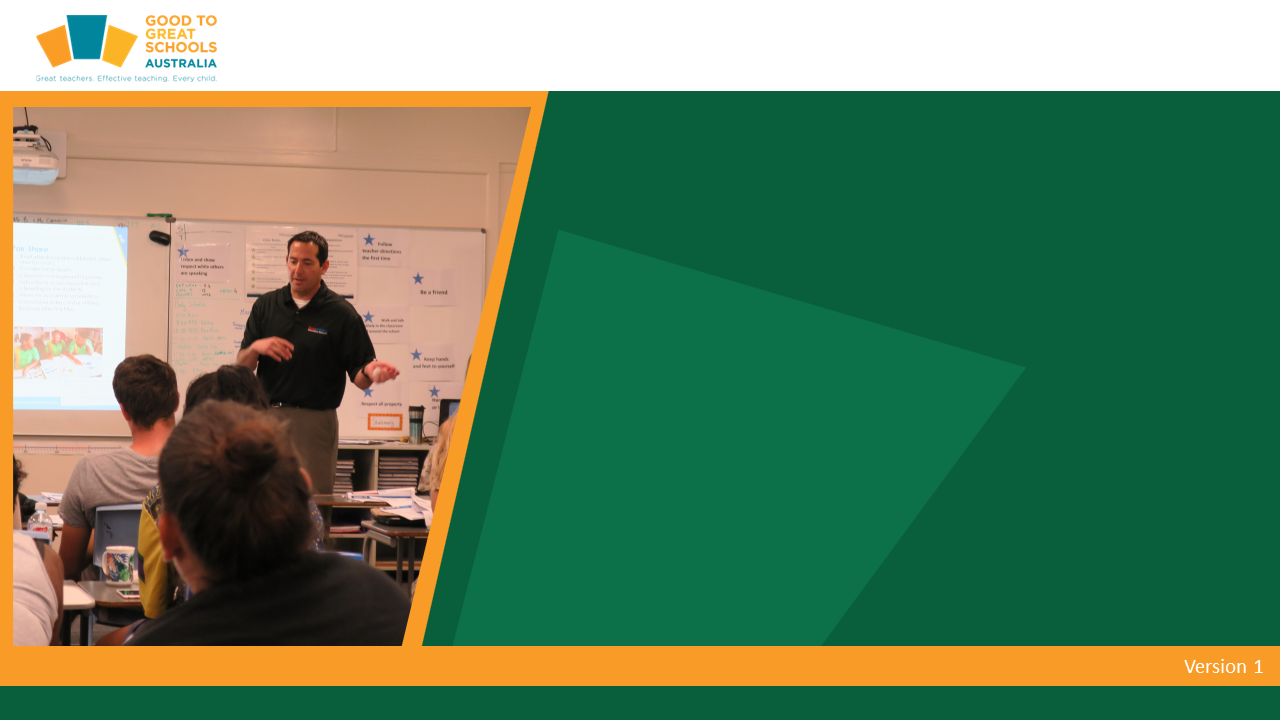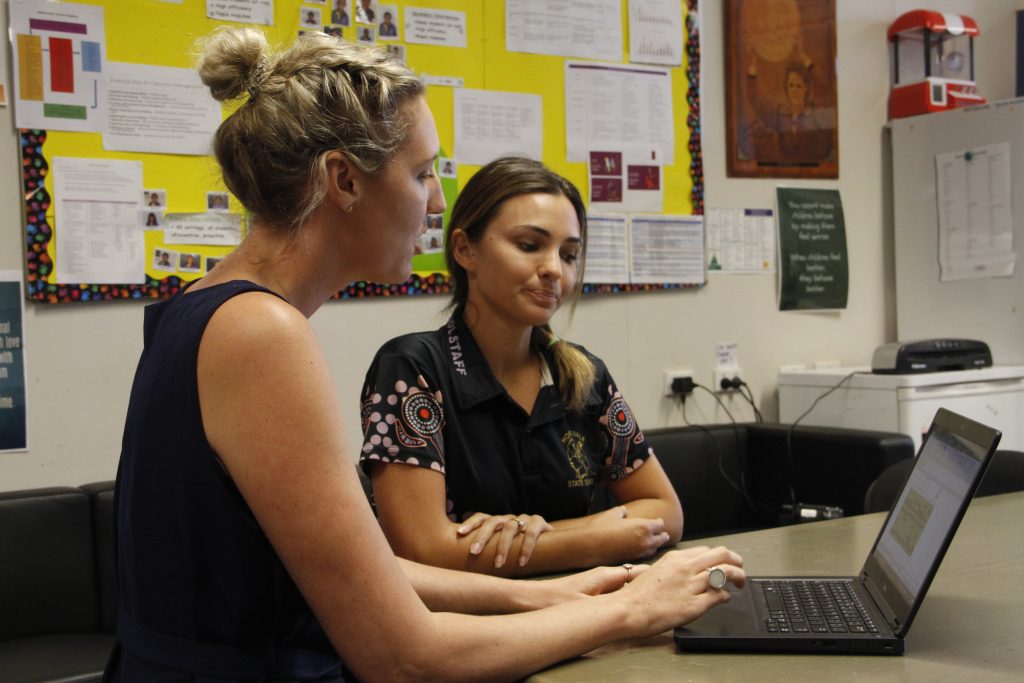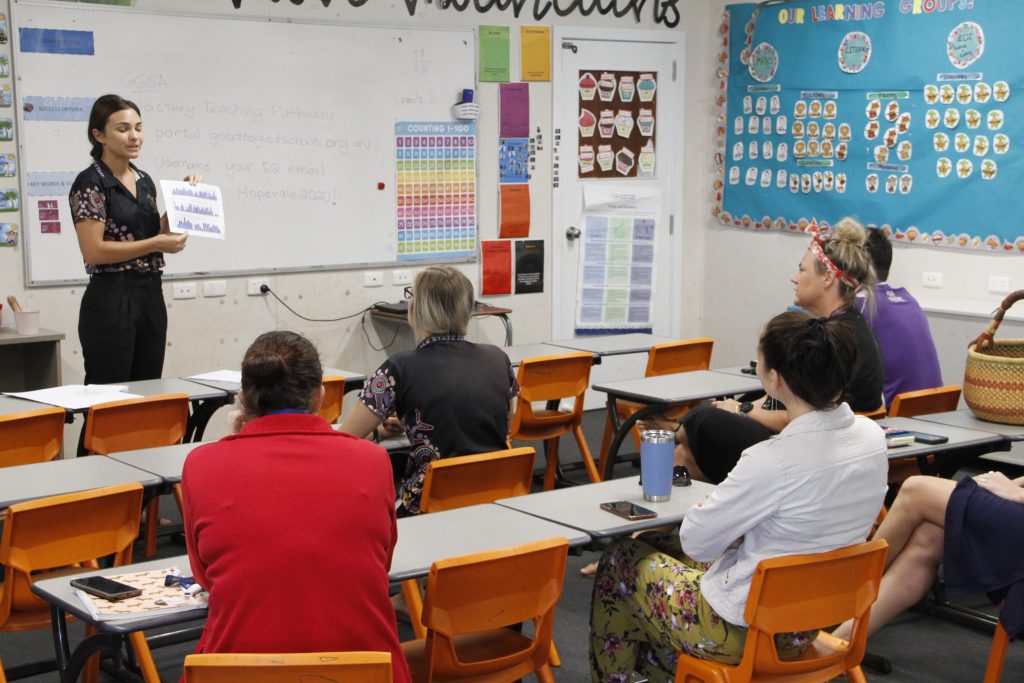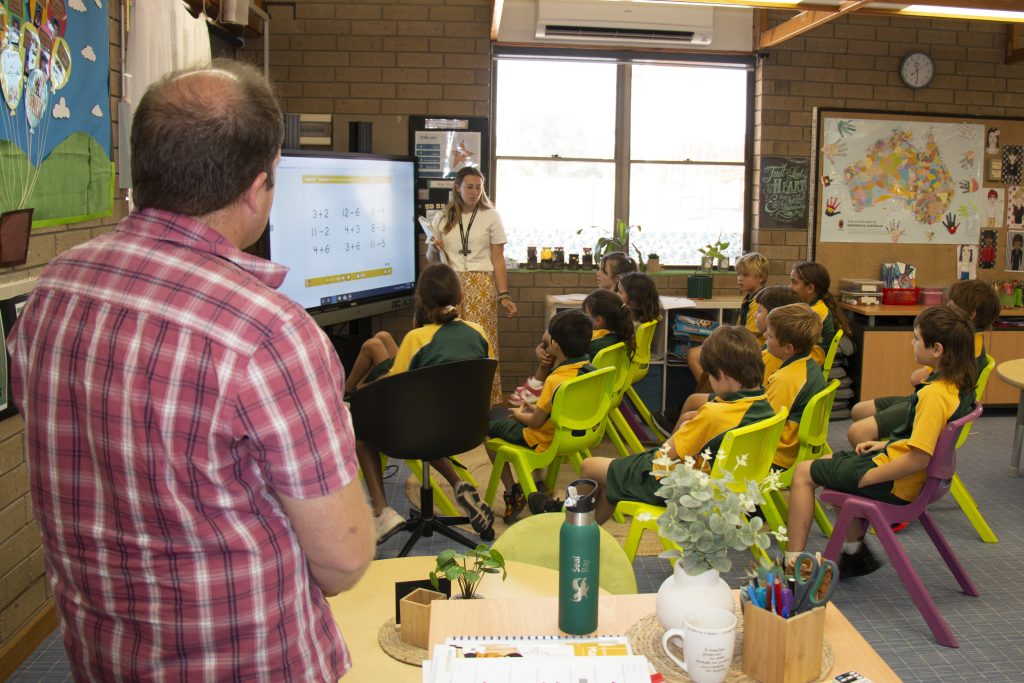Back to Course
Practice Use Evidence to Discuss Successes and Challenges with Peer Schools
0% Complete
0/0 Steps
-
Module Introduction2 Topics
-
Delivered With Fidelity15 Topics|2 Tests
-
Cover
-
Module Objective
-
What Happens when Use Evidence to Discuss Successes and Challenges with Peer Schools is Delivered with Fidelity
-
How to Use Evidence to Discuss Successes and Challenges with Peer Schools
-
Use Evidence to Discuss Successes and Challenges with Peer Schools: Scenario
-
Use Data to Make Informed Decisions
-
Video: How Teachers Use Student Data to Improve their Own Teaching Practice
-
The School Team Celebrate Positive Outcomes
-
The School Team Celebrates Positive Outcomes: Scenario
-
School Team Builds a Culture of Collaboration Around Continuous Improvement
-
School Team Builds a Culture of Collaboration Around Continuous Improvement: Scenario
-
The School Team Participates in Collegial Conversations
-
Video: Importance of Collegial Conversations
-
Check Your Understanding
-
Test Your Understanding
-
Cover
-
Not Delivered With Fidelity12 Topics|2 Tests
-
Cover
-
What Happens When School Teams are not Using Evidence to Discuss Successes and Challenges with Peer Schools with Fidelity
-
Team Members are Unable to Use Data to Make Informed Decisions
-
Team Members are Unable to Use Data to Make Informed Decisions: Scenario
-
Unable to Celebrate Positive Outcomes
-
Unable to Celebrate Positive Outcomes: Scenario
-
The School Team does not Build a Culture of Collaboration and Continuous Improvement
-
The School Team does not Build a Culture of Collaboration and Continuous Improvement: Scenario
-
The School Team does not Participate in Collegial Conversations
-
The School Team Does Not Participate in Collegial Conversations: Scenario
-
Check Your Understanding
-
Test Your Understanding
-
Cover
-
Barriers That Impede Fidelity9 Topics|2 Tests
-
Cover
-
Barriers that Impeded Using Evidence to Discuss Success and Challenges with Peer Schools with Fidelity
-
Using Deductive Logic to Identify the Cause of the Barrier
-
Not Knowing Why Using Evidence to Discuss Successes and Challenges is Important
-
Not Knowing How to Use Evidence to Discuss Successes and Challenges with Peer Schools
-
Allocated to Unrelated Tasks
-
Staff Absences or Shortages
-
Check Your Understanding
-
Test Your Understanding
-
Cover
-
Removing Barriers That Impede Fidelity12 Topics|2 Tests
-
Cover
-
Ways to Tackle the Barriers so Use Evidence to Discuss Successes and Challenges with Peer Schools is Delivered with Fidelity
-
Learn Why Using Evidence to Discuss Successes and Challenges with Peer Schools is Important
-
Learning Why Using Evidence to Discuss Successes and Challenges with Peer Schools Process
-
Learn How to Use Evidence to Discuss Successes and Challenges with Peer Schools
-
Learning How to Use Evidence to Discuss Successes and Challenges with Peer Schools
-
Prioritising Professional Learning
-
Learning How to Prioritise Professional Learning
-
Address Staff Absences or Shortages
-
Learn How to Address Staff Absences or Shortages
-
Check Your Understanding
-
Test Your Understanding
-
Cover
-
Module Completion Survey1 Topic
Participants 11
Lesson 2,
Topic 12
In Progress
The School Team Participates in Collegial Conversations
Kimberly December 25, 2023
Lesson Progress
0% Complete

The School Team Participates in Collegial Conversations
For the school team to participate and benefit from collegial conversations, every member must be involved. Using data and sharing successes and challenges in collegial conversations at the school level makes sharing with peer schools a natural next step.

Process
The principal:
- encourages collaboration and collegiality across the teaching team and with the leadership team
- shares school improvement data openly with the school team
- acknowledges successes at staff meetings
- provides solutions to school-wide challenges.

The instruction coach:
- encourages collaboration and collegiality across the teaching team and with the leadership team
- forges a unique mindset between teaching team members
- acknowledges improvement and uses the knowledge and skills of other teachers.

The teaching team:
- welcome observations and visits to their classroom
- take on feedback, coaching and training in their professional practice
- share techniques and strategies that demonstrate improvement with peers
- feel comfortable asking for assistance from experienced peers or leadership
- observe effective teaching techniques delivered by a peer who has mastered the technique or practice.
On the next slide, you will watch a video about the importance of collegial conversations or school professional conversations and why they should be embedded into a school’s culture.

